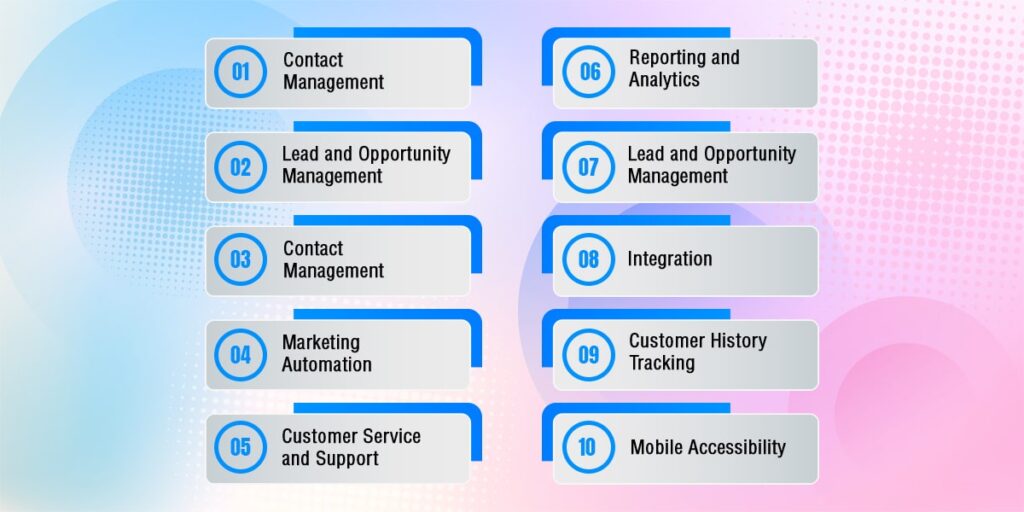Most Important Features of a CRM
In the fast-paced world of modern business, Customer Relationship Management (CRM) has become indispensable, and understanding the essential features that power these systems is key to harnessing their transformative potential.
From contact management to automation and analytics, CRM features are the building blocks of effective customer engagement, productivity enhancement, and data-driven decision-making, making them the lifeline of organizations striving for sustainable success in today’s competitive landscape.
What is the Core CRM Tool?
The core CRM (Customer Relationship Management) tool is a software application or platform designed to help businesses manage and maintain their interactions with customers and prospects.
Effective Approach to Manage your Relationship with Customers
The most effective approach to managing your relationship with customers using CRM involves integrating email platforms like Gmail and Outlook to streamline communication, track interactions, and ensure seamless customer engagement, ultimately enhancing customer satisfaction and loyalty.
Key Features of a Core CRM Tool Typically Include

1. Contact Management: Storing and organizing customer contact information, including names, addresses, phone numbers, and email addresses.
2. Lead and Opportunity Management: Tracking potential sales leads and opportunities, as well as their progress through the sales pipeline.
3. Sales Automation: Automating sales processes, such as lead assignment, follow-ups, and quotes, to streamline the sales cycle.
4. Marketing Automation: Managing marketing campaigns, email marketing, and customer segmentation to target and nurture leads and customers.
5. Customer Service and Support: Providing tools for managing customer inquiries, complaints, and support requests, often through ticketing systems and knowledge bases.
6. Reporting and Analytics: Generating reports and dashboards to analyze customer data, track sales performance, and identify trends and opportunities.
7. Integration: Integrating with other business systems and tools, such as email, calendars, and e-commerce platforms, to centralize data and improve efficiency.
8. Collaboration: Enabling team members to collaborate on customer interactions and share information within the organization.
9. Customer History Tracking: Recording and tracking all customer interactions, including calls, emails, meetings, and purchases, to provide a complete view of the customer’s history.
10. Mobile Accessibility: Allowing access to CRM data and functionality on mobile devices to support remote and on-the-go work.
Popular CRM Tools
- Salesforce
- Microsoft Dynamics 365
- HubSpot CRM
- Zoho CRM
- Monday.com
- Freshsales
- Mailchimp
- Oracle CX
Conclusion
The most important features of a CRM (Customer Relationship Management) system serve as the foundation for modern businesses striving to excel in customer engagement, sales, and data-driven decision-making.
As businesses continue to evolve, CRM systems with AI capabilities and mobile accessibility pave the way for staying competitive in an ever-changing landscape. By harnessing these essential features, organizations can unlock their full potential, foster lasting customer relationships, and thrive in today’s dynamic market.
At ArchitCX, we pride ourselves on delivering exceptional CRM services. Our comprehensive solution encompasses all the essential tools businesses require to thrive. We assist businesses in efficiently managing their contacts, simplifying the sales process, gaining insights from their data, seamlessly integrating with other tools, and scaling alongside their growth. Our commitment to these features empowers businesses to cultivate stronger customer relationships, streamline sales operations, and ultimately achieve greater success in their endeavors.


